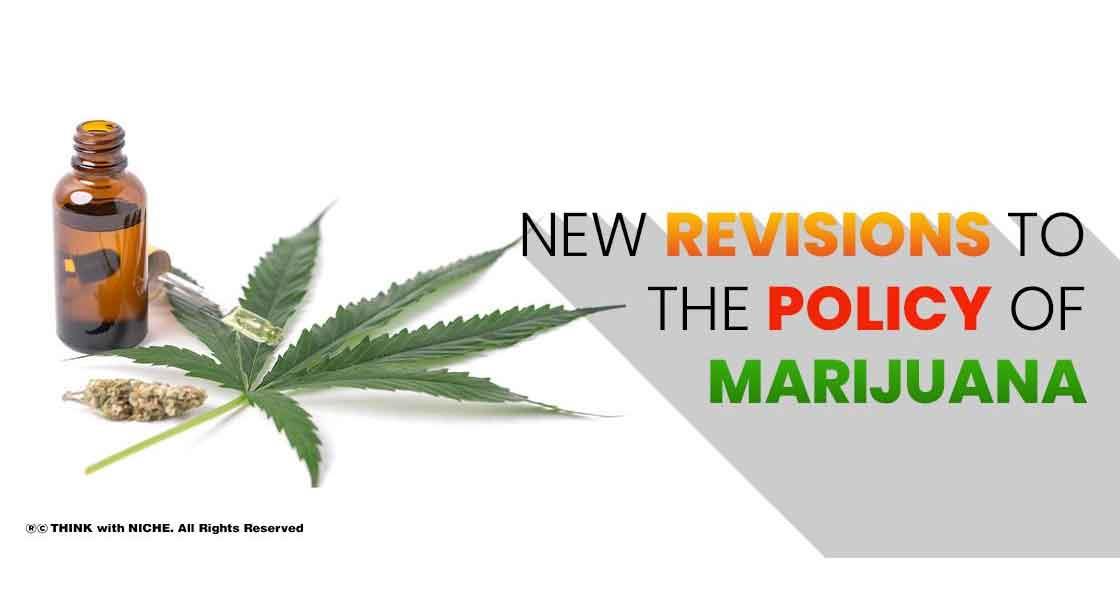New Revisions To The Policy Of Marijuana

Blog Post
Because the legislation in this area is always changing, it is difficult for firms to make modifications to their workplace practices. A year ago, our blog addressed a variety of concerns concerning the modification of your marijuana policy. #ThinkWithNiche
An increasing number of states have legalized marijuana for recreational and medical purposes. Courts are also deliberating on some of the practical issues companies face concerning marijuana usage in the workplace. How can employers keep up with continually changing rules and court rulings? Here are some recent updates to keep you up to date on what's going on.
Confronting Federal Legislation
Marijuana is still categorized as a Schedule I controlled substance under federal law (although this may change, as explained later). Regardless of state legislation, employers must prevent workers from consuming marijuana in the workplace under the following situations: The Drug-Free Workplace Act applies to government contractors and grantees (DFWA). This regulation forbids marijuana usage in the workplace but does not enable employers to limit their employees' access to it at other times. Commercial drivers in the United States who are subject to the Department of Transportation's legislation must obey the rules on drug testing and possession.
Employees' Compensation
What if a business owner is injured on the job and requires medical marijuana (assuming it is legal in your state)? It depends on where you reside. For example, Florida law appears to prohibit reimbursement, but a lawsuit is now being filed to reverse the judgment. According to a recent New Jersey court judgment, reimbursement is conceivable. The Compassionate Use Act (CUA) of the state provides for the reimbursement of medical marijuana prescription costs for injured employees.
Lodging Alternatives That Are Reasonably Priced
The Americans with Disabilities Act requires reasonable accommodations for handicapped employees. Is it legal to use marijuana to treat a medical condition? It is conditional on the current state of circumstances. Some states allow for termination based on marijuana use, even if the user has a disability. Employees in certain states have a private right of action against their employers if they do not accommodate their condition, which includes the use of medical marijuana as a disability accommodation. A Connecticut court recently decided that the state's statute (which gives that private right of action) does not exclude employees with disabilities from employer-mandated drug testing. This means that an employer can dismiss a handicapped employee who fails a drug test, even if the employee is using medicinal marijuana for medical reasons. Huh?
What Is The Distinction Between Use And Impairment
Employers should look into their state's legislation to determine whether they may restrict employees from using marijuana at work and terminate them if they are impaired by it (i.e., failing a drug test). A new Virginia law prohibits employers from discriminating against employees who use cannabis oil to treat the symptoms of specified conditions and get a legitimate written certification to that effect from a practitioner. Employees who are impaired by cannabis oil or who have it in their possession throughout their workday may face disciplinary action. Is there a narrow lane for employers to use?
What Does It All Mean In The End
Employers must stay up to date on changes in their state's marijuana-use regulations in the workplace. Any questions they may have can be answered by an employment law attorney. Also, keep an eye out for legislation in Congress that might remove marijuana from the list of prohibited substances. All of this would be accomplished through the Veterans, Small Business, and Medical Professionals Cannabis Reform Act, which would be a game-changer!
You May Like
EDITOR’S CHOICE












